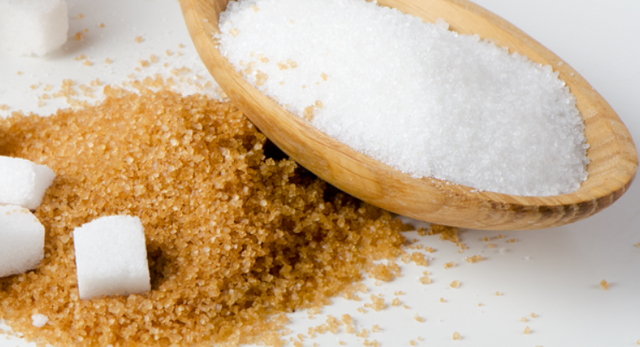
In a world where conscious living is becoming increasingly vital, the choices we make regarding the food on our plates play a significant role. One such choice is opting for organic sugar—a sweet delight that not only pleases our taste buds but also nurtures the planet through sustainable agriculture practices.
What is Organic Sugar?
Prior to exploring its implications for sustainable agriculture, let us examine what makes organic sugar distinct. Unlike conventional sugars, organic sugar is produced without the use of chemical herbicides, pesticides, or genetically modified organisms (GMOs). Rather, it is based on environmentally benign methods that give the land, farmers, and the ecosystem's overall balance first priority.
- Rooted in Healthy Soil Practices: Sustainable agriculture begins with nurturing the very foundation—the soil. At AsmitA Organic Farms, their commitment to sustainable practices shines through in every granule of organic sugar they produce. By eschewing harmful chemicals that can compromise soil integrity, their farmers champion eco-friendly alternatives. Natural fertilizers and meticulous crop rotation methods are the cornerstones of their approach, ensuring that the soil retains its fertility and continues to support vigorous plant growth season after season. With AsmitA Organic Farms, it's not just about sugar; it's about cultivating a sustainable future from the ground up.
- Preserving Biodiversity: Conventional sugar farming often involves large monoculture fields, which can lead to biodiversity loss and negatively impact ecosystems. In contrast, organic sugar farms are proponents of biodiversity. By avoiding monoculture and incorporating diverse crops, they create a thriving environment that attracts beneficial insects, birds, and other wildlife. This not only helps control pests naturally but also fosters a healthier, more resilient ecosystem.
- Water Conservation Practices: Sustainable agriculture is inseparable from responsible water use. Organic sugar farming employs water conservation techniques, such as rainwater harvesting and efficient irrigation systems. By prioritizing water stewardship, organic sugar farms contribute to the preservation of this precious resource for both current and future generations.
- Reduced Carbon Footprint: Cutting down on the carbon footprint of food production is a crucial aspect of sustainable agriculture. Growing sugar organically emphasises low-impact methods that improve soil fertility and reduce greenhouse gas emissions via natural processes. This dedication to environmentally beneficial activities helps to promote a healthy world and mitigate the effects of climate change.
- Empowering Farmers: Sustainability includes the social well-being of the communities concerned as well as the environment. Fair trade practises are frequently used in organic sugar cultivation, guaranteeing that farmers are fairly compensated for their labour. Within the farming community, this empowerment promotes a more equal allocation of resources and boosts local economies.
Conclusion
Selecting organic sugar is a deliberate choice to promote sustainable agriculture rather than merely a matter of taste. In the future, we could assume the position of stewards, making dietary decisions that prioritise global health in order to contribute to a balanced and healthy ecosystem. The next time you savour the sweetness of organic sugar, keep in mind that you are supporting a sustainable and peaceful cohabitation of agriculture and the environment in addition to the deliciousness.